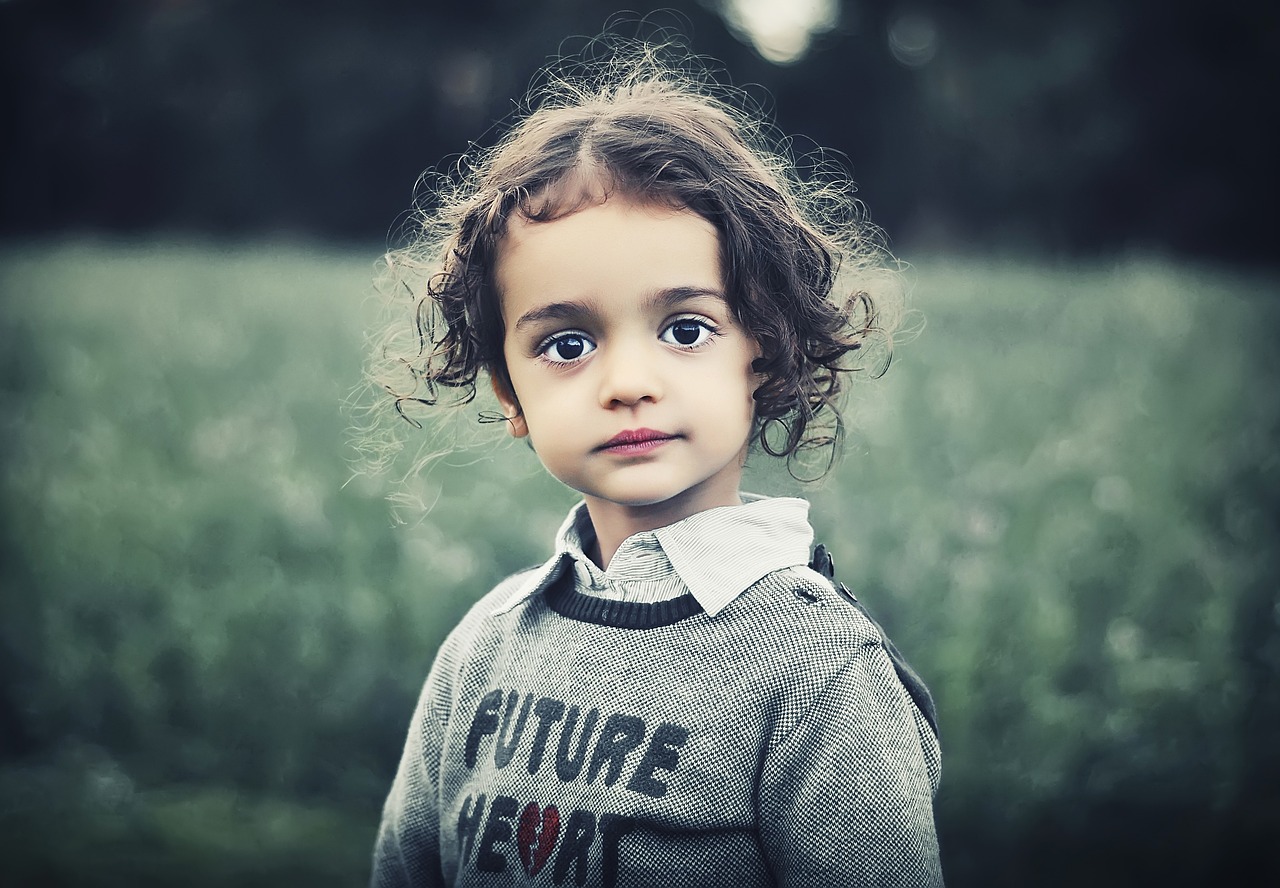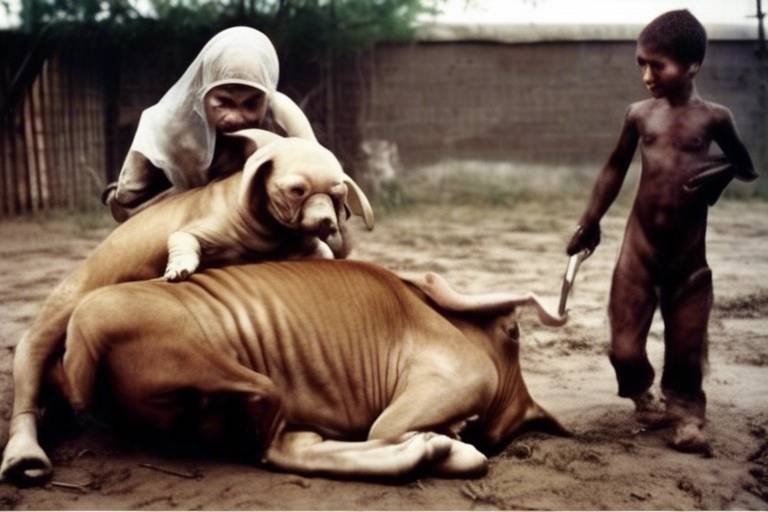The Morality of Child Adoption - A Deeper Inquiry
The topic of child adoption is one that evokes a myriad of emotions and ethical considerations. Adoption is not just a legal process; it is a profound journey that intertwines the lives of children, adoptive families, and society at large. As we delve into this complex landscape, it becomes essential to understand the ethical dimensions that govern adoption. What drives individuals to adopt? What are the implications for the children involved? And, crucially, how do we ensure that the best interests of the child remain at the forefront of every decision made? These questions are not merely academic; they resonate deeply with the lived experiences of countless families and children across the globe.
At its core, adoption is about providing a loving home for children who, for various reasons, cannot remain with their biological families. However, the moral responsibilities that accompany this act extend far beyond the immediate act of adopting a child. It requires a commitment to understanding the psychological and emotional needs of the child, navigating the complexities of identity, and fostering an environment that promotes healthy development. As we explore these themes, we will uncover the multifaceted nature of adoption and its implications for all parties involved.
In this article, we will embark on a journey through the ethical framework of adoption, examining the rights of children, the responsibilities of adoptive parents, and the evolving societal views on adoption. We will also confront the stigmas and stereotypes that often cloud public perception, aiming to promote a more inclusive understanding of what it means to be part of an adoptive family. Through this inquiry, we hope to shed light on the moral obligations that accompany the beautiful act of adopting a child, ensuring that every child’s right to a loving and supportive environment is upheld.
Understanding the moral principles that govern adoption is crucial. Adoption is not merely a transaction; it is a profound commitment that involves the lives of vulnerable children. Various ethical theories provide a framework for examining the complexities of adoption. For instance, the principles of utilitarianism suggest that actions should be judged based on their outcomes. In the context of adoption, this raises questions about the welfare of the child versus the desires of the adoptive parents. Are we prioritizing the child's future happiness, or are we succumbing to the emotional pull of wanting to be a parent?
Moreover, deontological ethics emphasize the importance of duty and moral rules. This perspective reminds us that adoptive parents have an obligation to respect the child’s rights and dignity. It raises important considerations about transparency, especially regarding the child’s biological background and the circumstances of their adoption. As we navigate these ethical waters, it becomes evident that a balanced approach, one that considers both the needs of the child and the intentions of the adoptive parents, is essential.
In the context of adoption, the inherent rights of children must always be a priority. Every child deserves to be treated with dignity and respect, regardless of their background. This section delves into the various rights that children hold, particularly the right to know their origins and the right to maintain connections with their biological family when appropriate. The best interests of the child should always be the guiding principle in adoption decisions. This means that the emotional and psychological well-being of the child must be considered above all else.
Exploring how adoption impacts a child's sense of identity reveals the profound psychological aspects of being adopted. Children often grapple with questions about their origins, which can lead to feelings of confusion or insecurity. It is essential for adoptive parents to foster an environment where these discussions are encouraged and supported. Understanding one's origins can be a crucial part of a child's identity formation, and adoptive families should be equipped to navigate these conversations with sensitivity and care.
The debate between open and closed adoption arrangements adds another layer to the ethical implications of adoption. Open adoptions allow for ongoing contact between the child and their biological family, which can provide a sense of continuity and understanding. On the other hand, closed adoptions may shield the child from potential complexities but can also leave them with unanswered questions about their past. Understanding the ethical ramifications of each approach is vital for adoptive parents as they make decisions that will impact their child's life.
Support systems play a crucial role in the lives of adopted children. Counseling and community resources can help them navigate their unique experiences, providing a safe space to express their feelings and concerns. It is essential for adoptive families to seek out these resources to ensure their children have the support they need to thrive. Whether through therapy, support groups, or educational programs, fostering a strong support network can make a significant difference in the well-being of adopted children.
Adoptive parents carry significant moral responsibilities. They must not only provide a loving home but also advocate for their child's needs within the broader community. This includes being aware of the unique challenges that adopted children may face and actively working to create an inclusive environment that respects their background. The ethical obligations extend beyond the home; adoptive parents are also responsible for educating themselves and others about adoption, helping to dismantle stereotypes and promote understanding.
Societal attitudes toward adoption have evolved significantly over time, impacting the moral discourse surrounding the practice. In the past, adoption was often shrouded in stigma, with adopted children facing discrimination and misunderstanding. However, as awareness grows, more people are beginning to recognize the value of adoptive families and the love they provide. This shift in perspective is crucial for fostering a more inclusive society where every family, regardless of its structure, is celebrated.
Despite the progress made, common stigmas associated with adoption still persist. Adopted children and their families often encounter misconceptions that can lead to challenges in their daily lives. These stereotypes can affect the self-esteem of adopted children and create barriers in their social interactions. It is essential to confront these stigmas head-on, promoting a narrative that emphasizes the love and commitment found within adoptive families.
Fostering positive narratives around adoption is vital for combating stereotypes. By sharing stories of successful adoptive families and highlighting the joys and challenges of adoption, we can create a more accurate and inclusive understanding of the experience. Media representation, community engagement, and educational initiatives can all play a role in reshaping perceptions and promoting acceptance of adoptive families.
- What are the main reasons people choose to adopt? Many individuals and couples choose to adopt due to a desire to provide a loving home to a child in need, personal experiences with infertility, or a commitment to social justice.
- How can adoptive parents support their child's identity? Adoptive parents can support their child's identity by encouraging open discussions about adoption, providing access to resources about their background, and fostering connections with their biological family when appropriate.
- What are the differences between open and closed adoption? Open adoption allows for ongoing communication and contact with the biological family, while closed adoption typically involves no contact or information exchange after the adoption is finalized.
- How can society help reduce stigma around adoption? Society can help reduce stigma by promoting positive narratives, educating the public about adoption, and celebrating diverse family structures.

The Ethical Framework of Adoption
Understanding the moral principles that govern adoption is crucial for anyone involved in the process—be it the biological parents, adoptive parents, or the children themselves. Adoption is not just a legal transaction; it is a deeply emotional and ethical journey that can have lasting implications. At its core, the ethical framework of adoption revolves around several key principles that guide the actions and decisions of all parties involved. These principles include autonomy, beneficence, non-maleficence, and justice.
Autonomy refers to the right of individuals to make informed decisions about their lives. In the context of adoption, this means that biological parents should have the freedom to choose adoption for their child without coercion. It also means that adoptive parents must respect the child's autonomy as they grow, allowing them to express their feelings about their adoption journey.
Next, we have beneficence, which is the ethical principle of doing good. In adoption, this principle emphasizes the responsibility of all parties to act in the best interest of the child. This includes ensuring that the child is placed in a loving, supportive environment where they can thrive. The adoptive family must be equipped to provide emotional, educational, and social support, fostering a nurturing atmosphere that promotes the child's well-being.
On the flip side, non-maleficence is about avoiding harm. It underscores the necessity of protecting adopted children from potential psychological and emotional trauma that could arise from the adoption process. Adoptive parents must be sensitive to the child's feelings and experiences, ensuring that they do not inadvertently cause harm by dismissing their background or identity. This is particularly important as children may grapple with feelings of loss related to their biological families.
Lastly, the principle of justice pertains to fairness and equality. It is essential to ensure that all children, regardless of their background, have equal access to opportunities and resources. This principle calls for a systemic approach to adoption, advocating for policies that protect the rights of children and promote equitable treatment for all families, whether they are biological or adoptive.
These ethical principles are not just theoretical; they manifest in real-world practices and policies surrounding adoption. For instance, agencies often implement rigorous screening processes for potential adoptive parents to ensure they are prepared to meet the ethical obligations that come with adoption. Furthermore, ongoing training and support for adoptive families can help them navigate the complexities of their roles while adhering to these ethical standards.
As we delve deeper into the ethical framework, it becomes clear that the implications of adoption extend beyond the individual child and family. Society at large plays a role in shaping the narrative around adoption, influencing how we perceive and approach this profound act of love and commitment. By fostering an understanding of these ethical principles, we can create a more supportive environment for adopted children and their families.
- What are the main ethical principles involved in adoption?
The main principles include autonomy, beneficence, non-maleficence, and justice. - Why is it important to consider the child's best interests in adoption?
Prioritizing the child's best interests ensures they are placed in nurturing environments that support their emotional and psychological well-being. - How can adoptive parents uphold ethical responsibilities?
Adoptive parents can uphold their responsibilities by providing love, support, and understanding, while also being sensitive to the child's background and feelings.

The Rights of the Child
When we talk about adoption, it's essential to recognize that at the heart of this complex process lies the rights of the child. These rights are not just legal formalities; they are fundamental principles that guide the adoption journey and ensure that the child's welfare is prioritized above all else. The United Nations Convention on the Rights of the Child (UNCRC) outlines several key rights that every child should enjoy, regardless of their circumstances. Understanding these rights is crucial for everyone involved in the adoption process, from birth parents to adoptive families, and even to society as a whole.
One of the primary rights of a child is the right to family life. This means that every child deserves a stable, loving environment where they can grow and thrive. Adoption serves as a means to fulfill this right for many children who are unable to remain with their birth families due to various circumstances. However, it is vital to ensure that the adoption process is conducted ethically, keeping the child's best interests at the forefront. This involves thorough assessments of adoptive families and providing adequate support to both the child and the new parents.
Additionally, a child's right to identity is paramount. Every child has the right to know their origins and to have a sense of belonging. This is particularly important in adoption, where the child's background may be complex. Open adoption arrangements can play a significant role in preserving a child's connection to their birth family, allowing them to explore their roots while still benefiting from the love and support of their adoptive family. The psychological implications of identity for adopted children cannot be overstated, as understanding one’s origins can greatly impact their self-esteem and emotional well-being.
Furthermore, the right to participation is crucial. Children should have a voice in decisions that affect their lives, including the adoption process. While they may not be able to make all the decisions, their feelings and opinions should be considered. This fosters a sense of agency and respect, which is essential for their development. It's important for adoptive parents to engage with their children in age-appropriate discussions about adoption, helping them understand their unique situation and encouraging open communication.
Moreover, the right to protection from harm is another critical aspect of a child's rights in the adoption context. Children who are placed for adoption often come from backgrounds of trauma or instability. Adoptive families must be prepared to address these challenges with sensitivity and care. This includes providing emotional support, access to counseling, and creating a safe environment where the child feels secure and valued. The responsibility does not end with the adoption finalization; it extends into the ongoing development of a nurturing and supportive family dynamic.
In summary, the rights of the child in the context of adoption are multifaceted and deeply intertwined with the ethical considerations of the adoption process. By prioritizing these rights, we can ensure that adopted children have the opportunity to thrive, develop a strong sense of identity, and enjoy a loving family environment. The journey of adoption is not just about finding a home for a child; it's about honoring their rights and paving the way for a brighter future.
- What are the main rights of a child in adoption? The main rights include the right to family life, identity, participation, and protection from harm.
- How can adoptive parents support their child's rights? Adoptive parents can support their child's rights by fostering open communication, providing emotional support, and respecting their child's need for identity and belonging.
- What is open adoption, and how does it relate to a child's rights? Open adoption allows for ongoing contact between the adopted child and their birth family, which can help the child maintain a connection to their origins and fulfill their right to identity.

Adoption is a profound journey that intertwines the lives of children and families in unique ways. When a child is adopted, they often face a complex web of emotions and questions regarding their identity. This is not just about who they are in the eyes of their adoptive parents but also about their roots, heritage, and the biological connections that they may or may not have the opportunity to explore. The psychological implications of being adopted can be significant, as children grapple with feelings of belonging and the quest for understanding their origins.
For many adopted children, the search for identity can feel like trying to complete a puzzle with missing pieces. They may wonder about their birth parents, their cultural background, and how these aspects shape who they are. This curiosity can lead to a deeper exploration of their personal history, which is essential for fostering a strong sense of self. In fact, studies have shown that children who have access to information about their biological families tend to have a more positive self-image and are better equipped to navigate their feelings about adoption.
It's crucial for adoptive parents to create an environment where these discussions can happen openly and honestly. By encouraging questions and providing age-appropriate information, parents can help their children understand that adoption is just one part of their story. This approach not only validates the child's feelings but also fosters a sense of security and love within the family unit. When children feel safe to express their thoughts and emotions, they are more likely to develop a healthy identity that encompasses both their adoptive and biological backgrounds.
Moreover, the concept of identity in adoption isn't static; it evolves over time. As children grow, their understanding of themselves and their place in the world changes. This is where support systems come into play. Access to counseling and community resources can be invaluable for adopted children, helping them process their feelings and experiences. These support systems can provide a safe space for children to explore their identity, share their stories, and connect with others who have similar backgrounds.
Ultimately, the journey of understanding one's identity in the context of adoption is a deeply personal one. Each child's experience is unique, shaped by their individual circumstances and the love and support they receive from their adoptive families. By recognizing the importance of identity in the adoption process, we can better appreciate the complexities involved and strive to create a nurturing environment that celebrates each child's unique story.
- How can adoptive parents support their child's identity journey? Adoptive parents can support their child's identity journey by encouraging open conversations about adoption, providing access to information about their biological family, and fostering connections with support groups.
- What are the psychological effects of adoption on children? The psychological effects of adoption can vary, but many children may experience feelings of loss, curiosity about their biological parents, and questions about their identity. Support and understanding from adoptive parents can help mitigate these feelings.
- Is it important for adopted children to know about their biological background? Yes, knowing about their biological background can help adopted children form a more complete sense of self and understand their heritage, which is crucial for their identity development.

When it comes to adoption, one of the most significant choices that adoptive parents and birth parents face is whether to pursue an open or closed adoption. This decision can have profound implications for everyone involved, especially for the child. In an open adoption, there is a level of communication and contact between the adoptive family and the birth parents. This arrangement can vary widely, from exchanging letters and photos to regular visits. The beauty of open adoption lies in its potential to provide the child with a sense of belonging and connection to their roots. Imagine being able to know your biological family, to ask questions about your heritage, and to understand where you came from. This transparency can foster a sense of identity and security in the child, which is invaluable.
On the other hand, a closed adoption means that there is no contact or information shared between the adoptive family and the birth parents after the adoption is finalized. This arrangement can sometimes stem from the desire to protect the child from potential emotional turmoil or from the birth parents' wish for privacy. While closed adoptions can provide a clean break, they may also leave children with unanswered questions about their origins. It's like closing a book without reading the last chapter; the story feels incomplete, and the child may struggle with feelings of abandonment or confusion as they grow older.
To illustrate the differences further, let’s look at a quick comparison:
| Aspect | Open Adoption | Closed Adoption |
|---|---|---|
| Contact | Ongoing communication between birth and adoptive families. | No contact after the adoption is finalized. |
| Information Sharing | Regular updates, letters, and potentially visits. | Limited to no information shared about the birth family. |
| Child's Identity | Greater understanding of personal history and roots. | Possible feelings of confusion or loss regarding identity. |
| Emotional Impact | May provide emotional security and connection. | Can lead to feelings of abandonment or lack of closure. |
While both arrangements have their merits and drawbacks, the choice often depends on the individual circumstances and the preferences of the families involved. It’s essential for adoptive parents to consider the long-term implications of their decision, especially in terms of how it will affect their child’s emotional well-being. After all, every child deserves to know that they are loved and valued, regardless of the circumstances surrounding their adoption.
Ultimately, whether one chooses an open or closed adoption, the focus should always remain on the child's best interests. This means fostering an environment where the child feels safe, loved, and understood, whether that comes from knowing their birth family or from the loving embrace of their adoptive parents. The conversation around open and closed adoptions is ongoing, and as society evolves, so too does our understanding of what makes for a healthy family structure.

When it comes to adoption, the journey doesn't just end once a child is placed in a new home. In fact, it’s just the beginning of a lifelong process that demands attention, love, and understanding. Adopted children often face unique challenges that can impact their emotional and psychological well-being. Therefore, establishing robust support systems is crucial for helping these children navigate their experiences. Just like a sturdy bridge needs strong supports to hold it up, adopted children need a network of support to thrive.
These support systems can come in various forms, including family support, community resources, and professional counseling. Adoptive parents play a pivotal role in this ecosystem. They must actively seek out resources and create an environment that encourages open communication. After all, a child who feels safe and understood is more likely to flourish. Moreover, it’s essential for adoptive parents to educate themselves about the emotional needs of their adopted children, which may differ significantly from those of biological children.
Furthermore, community organizations and local support groups can provide invaluable resources. These groups often offer workshops, counseling services, and social gatherings where adopted children and their families can connect with others who share similar experiences. This sense of community can be incredibly comforting, as it helps to normalize the feelings and questions that arise during the adoption journey. For example, some organizations may provide:
- Workshops on understanding adoption-related issues
- Support groups specifically for adopted children
- Counseling services tailored to the needs of adopted individuals
In addition, schools play a significant role in supporting adopted children. Educators and school counselors should be aware of the unique challenges these children may face, such as feelings of loss or identity confusion. By fostering an inclusive environment, schools can help adopted children feel accepted and understood. This can include implementing programs that educate peers about adoption and its implications, thereby reducing bullying and promoting empathy.
Lastly, it’s vital to acknowledge that the journey of adoption can be complex and evolving. Children may have questions about their origins or face moments of confusion regarding their identity. Therefore, ongoing support is essential. Parents should encourage their children to express their feelings and ask questions, ensuring that they know they are not alone in their experiences. Just as a tree needs nurturing to grow strong, adopted children need continuous support to develop a healthy sense of self.
Q: What are some common emotional challenges faced by adopted children?
A: Adopted children may experience feelings of loss, abandonment, and identity confusion. They might also struggle with self-esteem issues or face questions about their origins.
Q: How can adoptive parents support their child's emotional needs?
A: Adoptive parents can support their children by fostering open communication, seeking out community resources, and being proactive in educating themselves about the unique challenges of adoption.
Q: Are there specific resources available for adopted children?
A: Yes, many organizations offer support groups, counseling services, and educational workshops specifically tailored for adopted children and their families.

Adoption is more than just a legal process; it is a profound commitment that comes with a plethora of moral responsibilities. Adoptive parents are not only gaining a child but are also stepping into the role of a lifelong protector and guide. This responsibility can feel overwhelming at times, but it is essential to recognize that with great power comes great responsibility. So, what exactly are these responsibilities?
First and foremost, adoptive parents must ensure that the emotional and psychological needs of their adopted child are prioritized. Every child, regardless of their background, deserves a nurturing environment where they feel safe and loved. This means being attuned to their feelings, understanding their unique experiences, and providing support as they navigate their identity. Adoptive parents should actively engage in conversations about adoption, allowing children to express their feelings and curiosities about their origins without fear of judgment.
Furthermore, adoptive parents hold a significant responsibility to educate themselves about the complexities surrounding adoption. This includes understanding the cultural, social, and emotional implications that may arise. For instance, they should be aware of the possible feelings of loss and abandonment that an adopted child might experience. By being informed, adoptive parents can better empathize with their child's journey and provide the necessary reassurance and comfort.
Another crucial aspect of their responsibilities is to create a supportive network for their child. This could involve connecting with other adoptive families, engaging with community resources, or seeking professional counseling when needed. A strong support system not only benefits the child but also helps adoptive parents share their experiences and learn from others who are on a similar journey. Additionally, it fosters a sense of belonging and understanding for the child, which is invaluable.
In terms of legal and ethical obligations, adoptive parents must ensure that they are complying with all regulations and requirements associated with adoption. This includes maintaining transparency with their child about the adoption process and the child’s background as they grow older. It’s important to strike a balance between protecting the child’s privacy and providing them with the information they need to form a complete sense of self.
Ultimately, being an adoptive parent is about embracing the journey of growth—for both the child and themselves. It requires patience, empathy, and a commitment to fostering an environment where the child can thrive. The journey may not always be smooth, but the rewards of unconditional love and family bonds are worth every effort. As they navigate this path, adoptive parents must remember that they are not just raising a child; they are shaping a future.
- What are the most important responsibilities of adoptive parents? Adoptive parents should prioritize their child's emotional needs, educate themselves about adoption, and create a supportive network.
- How can adoptive parents support their child's identity? Open communication about adoption and encouraging the child to express their feelings is essential in supporting their identity.
- Is it important for adoptive parents to connect with other adoptive families? Yes, connecting with other adoptive families can provide valuable support and shared experiences that benefit both parents and children.

Adoption is a profound act of love and commitment, yet it often exists within a complex web of societal perceptions and beliefs. Over the years, the views surrounding adoption have evolved significantly, reflecting broader changes in cultural attitudes and values. In the past, adoption was sometimes shrouded in secrecy and stigma, with adopted children facing questions about their origins and worth. Today, however, there is a growing recognition of the importance of family diversity and the many forms that love can take.
One of the most notable shifts in societal views is the increasing acceptance of various family structures. No longer confined to the traditional nuclear family model, society is beginning to embrace the idea that families can be formed in numerous ways, including through adoption. This change is crucial because it challenges outdated stereotypes and highlights the idea that what truly matters is the love and care provided within the family, rather than the biological connection.
Despite these positive changes, challenges remain. Many adopted children and their families still encounter stigmas and misconceptions. For instance, some people may mistakenly believe that adopted children are less deserving of love or that they come from broken homes. These stereotypes can lead to feelings of isolation for both the child and the adoptive family. It's essential for society to recognize and combat these harmful narratives to foster a more inclusive environment for everyone involved in the adoption process.
Furthermore, the portrayal of adoption in media and popular culture plays a significant role in shaping societal views. Movies, television shows, and literature often depict adoption in a variety of lights, ranging from heartwarming tales of family reunification to darker narratives that emphasize loss and abandonment. While these stories can be powerful, they also have the potential to reinforce stereotypes or create unrealistic expectations about what adoption entails. Therefore, promoting more accurate and positive representations of adoption in media is vital for changing perceptions.
To truly understand the societal views on adoption, we must also consider the impact of education and awareness. Schools and community organizations can play a crucial role in fostering a more informed and compassionate perspective on adoption. By incorporating discussions about family diversity, the adoption process, and the unique experiences of adopted children into educational curricula, we can help cultivate empathy and understanding among future generations.
In conclusion, while societal views on adoption have made significant strides toward acceptance and understanding, there is still work to be done. By challenging stereotypes, promoting positive narratives, and increasing awareness, we can create a more inclusive society that recognizes the beauty and complexity of adoption. It is essential to celebrate the diverse families formed through adoption and to support both the children and their families in navigating their unique journeys.
- What are the main types of adoption? There are several types of adoption, including domestic, international, open, and closed adoption, each with its own unique processes and implications.
- How can society support adopted children and their families? Society can support adopted children by promoting awareness, providing resources, and fostering inclusive environments that celebrate family diversity.
- What challenges do adopted children face? Adopted children may face identity issues, stigma, and questions about their origins, which can impact their self-esteem and sense of belonging.
- How can media portrayals of adoption affect perceptions? Media portrayals can shape societal views by reinforcing stereotypes or promoting positive narratives, influencing how adoption is perceived in the broader culture.

When we think about adoption, many of us might conjure up heartwarming images of families coming together, but the reality is often clouded by stigmas and stereotypes that can negatively impact adopted children and their families. These preconceived notions can be as damaging as they are pervasive, creating barriers that make the adoption journey more complicated than it should be. Have you ever considered how these stereotypes shape the experiences of those involved in adoption?
One of the most common stereotypes is the idea that adopted children are somehow less than biological children. This notion implies a hierarchy within families that can lead to feelings of inadequacy and rejection for adopted children. Imagine being a child who hears, “You’re not really my child” or “You were chosen because your real parents didn’t want you.” Such statements can create a profound sense of alienation and can deeply affect a child’s self-esteem and identity.
Additionally, there are societal assumptions that adoptive parents are motivated by a desire to rescue children from unfortunate circumstances. While many adoptive parents are indeed driven by love and a desire to provide a stable home, framing their motivations in terms of charity can unintentionally undermine the legitimacy of their family dynamic. This perception can lead to a lack of understanding and support from the community, making it harder for adoptive families to feel accepted.
Moreover, adopted children often face questions about their origins that can be both intrusive and painful. Questions like, “What happened to your real parents?” or “Do you want to find them?” can create pressure on the child to navigate complex feelings about their identity and belonging. These inquiries can feel like a constant reminder of their difference, reinforcing the stigma that surrounds adoption.
To better understand the impact of these stigmas, let’s take a look at some common misconceptions:
| Stigma/Stereotype | Impact |
|---|---|
| Adopted children are less loved | Can lead to feelings of inadequacy and rejection |
| Adoption is a charity case | Undermines the legitimacy of adoptive families |
| Questions about biological parents | Creates pressure and feelings of alienation |
It's crucial to recognize that these stereotypes do not reflect the reality of adoption. The truth is that families formed through adoption can be just as loving and functional as any other family. By challenging these stigmas and promoting a more inclusive narrative, we can help foster a society where adopted children and their families feel supported and understood.
In conclusion, addressing the stigmas and stereotypes associated with adoption is not just a matter of social awareness; it’s a moral imperative. By educating ourselves and others, we can create a more accepting environment that honors the unique journeys of adopted children and their families. So, next time you hear a stereotype about adoption, consider taking a moment to challenge it. After all, every family has its own story, and those stories deserve to be celebrated, not stigmatized.
- What are some common misconceptions about adopted children? Many people believe that adopted children are less loved or that they come from troubled backgrounds, which is not true.
- How can I support an adopted child? Offer love, acceptance, and understanding. Be open to discussions about their adoption and encourage them to express their feelings.
- What should I avoid saying to an adopted child? Avoid questions that may feel intrusive or imply that they are different from biological children, such as “Do you want to meet your real parents?”

When it comes to adoption, the narratives we share can significantly influence how society perceives and interacts with adopted children and their families. Positive narratives about adoption are essential in shaping a more inclusive world where every child's story is valued and celebrated. Think of these narratives as the colorful threads in a tapestry; when woven together, they create a beautiful picture that reflects diverse experiences and backgrounds.
One of the most effective ways to promote positive narratives is through storytelling. Sharing personal stories from adoptive families, adopted individuals, and birth parents can help demystify the adoption process and highlight the love and resilience that often accompany these journeys. For instance, consider a story where an adopted child shares how their family helped them embrace their unique identity. This not only fosters understanding but also encourages other families to support their children in exploring their roots.
Moreover, media representation plays a crucial role in shaping public perception. By featuring diverse stories of adoption in films, television shows, and literature, we can challenge stereotypes and promote a more nuanced understanding of what it means to be adopted. When audiences see relatable characters who navigate the complexities of adoption with grace and humor, it helps dismantle the stigmas associated with it.
Additionally, community involvement is vital. Local organizations can host events that celebrate adoption, such as adoption awareness days or workshops that educate the public about the different facets of adoption. These events can serve as platforms for sharing success stories and discussing the challenges that adoptive families face. By fostering a sense of community around adoption, we create a support network that benefits everyone involved.
Finally, it's essential to engage in conversations that challenge negative stereotypes. When someone makes a dismissive comment about adoption, it’s an opportunity to educate them. By sharing facts and personal insights, we can reshape the narrative and encourage empathy and understanding. Remember, every conversation is a chance to turn the tide toward a more positive view of adoption.
In conclusion, promoting positive narratives around adoption is not just about changing perceptions; it's about creating a world where every adopted child feels valued and understood. By sharing stories, enhancing media representation, fostering community involvement, and engaging in meaningful conversations, we can build a future where adoption is celebrated as a beautiful journey of love and connection.
- What is the importance of positive narratives in adoption?
Positive narratives help to challenge stereotypes, foster understanding, and create a supportive environment for adopted children and their families. - How can storytelling influence perceptions of adoption?
Personal stories can humanize the adoption experience, making it relatable and helping others to empathize with the challenges and joys of adoption. - What role does media play in shaping views on adoption?
Media representation can either perpetuate stereotypes or promote understanding; positive portrayals can lead to greater acceptance and appreciation of diverse family structures. - How can communities support adopted families?
Communities can host events, provide resources, and create networks that celebrate adoption and offer support to families navigating the adoption process.
Frequently Asked Questions
- What are the main ethical considerations in child adoption?
Child adoption is a complex process that involves various ethical considerations. It’s crucial to prioritize the child’s best interests, ensuring that their rights and needs are at the forefront. Ethical frameworks often emphasize the importance of informed consent, respect for biological parents, and the long-term well-being of the child. Each adoption case is unique, requiring a careful examination of these moral principles.
- How does adoption affect a child's identity?
Adoption can significantly impact a child's sense of identity. Many adopted children grapple with questions about their origins and may experience feelings of loss or confusion. It’s essential for adoptive parents to foster an environment where open discussions about adoption are encouraged. This can help children understand their unique backgrounds and build a positive self-image.
- What are the differences between open and closed adoption?
Open adoption allows for ongoing contact between the adoptive family and the biological parents, providing a sense of connection for the child. In contrast, closed adoption involves no contact or information sharing between the parties. Each type has its ethical implications, with open adoption often seen as beneficial for the child's understanding of their identity and heritage.
- What support systems are available for adopted children?
Support systems play a vital role in helping adopted children navigate their experiences. Counseling services, support groups, and community resources can provide essential guidance and emotional support. These resources help children deal with the unique challenges they may face, promoting healthy emotional development and resilience.
- What responsibilities do adoptive parents have?
Adoptive parents bear significant moral responsibilities, including providing a stable and nurturing environment for their children. They must also respect the child's background and work to maintain connections with their identity. Additionally, adoptive parents should advocate for their child's needs within the broader community, ensuring they receive the support and understanding they deserve.
- How have societal views on adoption changed over time?
Societal views on adoption have evolved significantly, moving from stigma and secrecy to a more open and accepting attitude. This shift has influenced the moral discourse surrounding adoption, encouraging positive narratives that celebrate diverse family structures. Understanding these changes helps foster a more inclusive environment for adoptive families.
- What are some common stigmas associated with adoption?
Stigmas surrounding adoption often include misconceptions about the motivations of adoptive parents or the perceived issues of adopted children. These stereotypes can create challenges for families and children alike. It’s essential to address and debunk these myths to promote a more accurate understanding of the adoption experience.
- How can we promote positive narratives about adoption?
Promoting positive narratives about adoption involves sharing success stories and highlighting the joys of adoptive families. Community outreach, educational programs, and media representation can all contribute to a more supportive dialogue. By fostering understanding and acceptance, we can help combat the stigmas associated with adoption.



















